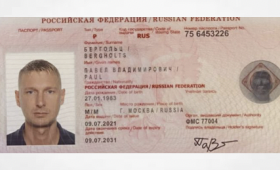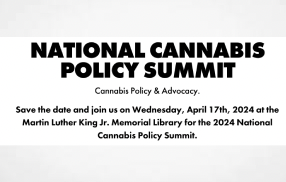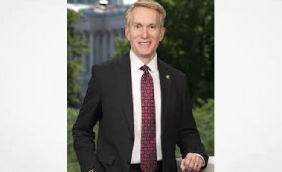Who’d have known !
Well done the Newcastle Herald for reporting this in such detail . One of the best pieces of cannabis journalism in Australia this year
They write
Adults caught using or possessing cannabis are much more likely to be charged in the Hunter than affluent areas of Sydney.
In this same period, police gave about 1100 people in the Hunter a cannabis caution. This represented only 32 per cent of cases.
The data shows the number of people in the Hunter going to court for cannabis possession has increased by 26 per cent in five years. But the number of cannabis cautions over that period rose by only 5 per cent.
Across the Hunter, the percentage of cases in which police issued a cannabis caution were: Newcastle [34 per cent], Lake Macquarie [38 per cent], Maitland [28 per cent], Port Stephens [37 per cent], Cessnock [28 per cent], Muswellbrook [16 per cent] and Singleton [11 per cent].
But in the most affluent areas of Sydney, many more cases are being handled with a caution. For example, in North Sydney 75 per cent of affected adults received cautions. In the Northern Beaches, 64 per cent were given cautions and in Sydney CBD the figure was 53 per cent.
Yet those caught in Penrith [36 per cent], Liverpool [40 per cent], Wollongong [37 per cent] and Central Coast [39 per cent] had much less chance of being cautioned.
Trendy Byron Bay compared more to the affluent areas of Sydney, with 66 per cent of affected people receiving cautions.
Greens MP David Shoebridge said the data “proves that there is postcode justice in NSW”.
“If you live in the wealthy parts of Sydney, you’re vastly more likely to get a cannabis caution,” he said.
“Policing of cannabis is really a class war – the poorer you are the more likely it is you will be taken to court by the police.”
Failed System
Mr Shoebridge said cannabis cautions were “meant to reduce the number of people being taken through the court system, but these figures show they are not working”.
“Policing cannabis has failed. What it ends up delivering is serious and random harm as people are taken to court and prosecuted with all the social and economic damage that causes.
“It’s time to listen to the evidence, learn from overseas experience and legalise cannabis.”
NSW Police Assistant Commissioner Max Mitchell, the Northern Region Commander, said officers across the Hunter “continue to focus on targeting drug supply and manufacture within our districts”.
Mr Mitchell said the police support harm minimisation strategies in “an effort to prevent and reduce the effects associated with illicit drugs”.
“Initiatives include the Cannabis Cautioning Scheme, which allows officers to exercise their discretion in appropriate cases and issue a caution for a minor cannabis offence,” Mr Mitchell said.
He said the Hunter Drug Court based at Toronto “aims to address underlying drug dependency issues”.

Breaking Down Barriers: Newcastle MP Tim Crakanthorp said the cannabis data “strengthens the argument that our drug laws need to change”. Picture: Simone De Peak
Newcastle MP Tim Crakanthorp said the cannabis data “strengthens the argument that our drug laws need to change”.
“With court systems in regional areas already stretched, sending so many people to court for less serious offences only continues to overburden the system,” Mr Crakanthorp said.
“NSW is clearly in need of serious drug reform, which was highlighted by the Special Commission of Inquiry into ice at the beginning of this year.
“The NSW government has sat on the inquiry’s 109 recommendations for almost 12 months now, but this conversation cannot be delayed forever.”
Moral Panic
The Berejiklian cabinet has deferred a plan to introduce a warning and fine system for possession of small amounts of drugs, following divisions among politicians and a wave of moral panic spread by the tabloid media.
However, the plan was created in response to the Special Commission of Inquiry into the Drug Ice, which recommended drug decriminalisation. The government has ruled out decriminalising drugs, but its plan for warnings and fines has been described as a way to “keep people out of court who should never be in court”.
The Cannabis Cautioning Scheme has been in place in NSW for 20 years. It was established in response to the 1999 NSW Drug Summit.
The scheme allows police to use discretion in deciding who receives a caution and who gets charged. Police can caution people if they are found with up to 15 grams of cannabis.
A person can only be cautioned twice and cannot be cautioned at all if they have prior convictions for drug offences, violence and sexual assault. The scheme does not apply to those caught supplying cannabis. In contrast, the ACT, Northern Territory and South Australia decriminalised cannabis for personal use years ago.
Will Tregoning, executive director of an organisation called Unharm, said possession of cannabis “should not be criminalised”.
“There’s a huge global movement away from criminalising cannabis,” he said.
“This is a substance that is entirely manageable. Most people who use cannabis use it infrequently. It’s a minor part of their lives. Many successful people have used cannabis. The idea that there’s some kind of public health benefit in criminalising its use is ridiculous.”
He said a criminal record for cannabis use “stays with you for life”.
“It’s like a ball and chain around your leg – all for possession of a plant that should be legal. Drug use happens right through society, but it’s the least powerful who end up being the targets.”
One police officer told the Newcastle Herald that there were “worse crims” north of Sydney on the Central Coast and in the Hunter.
“The police have to deal with a lot in those areas. There’s better people in Sydney,” he said.
He believed the Hunter and Central Coast were receiving much fewer cautions because those caught with cannabis had already received two cautions or had prior convictions.
However, Mr Shoebridge did not believe this could account for such large differences between areas.
Mr Tregoning said Australia had advanced in making medical cannabis legal.
He said the processes around accessing medical cannabis had become much more streamlined recently, but “it is still difficult and expensive for people to access through official channels”.
“This continues to drive people into the illicit market. They are at risk of being criminalised,” he said.
Regardless of the medical cannabis aspect, he said: “Cannabis should be legal because criminalising cannabis is harmful”.
Asked about the risks of using cannabis, he said: “There are risks related to alcohol use, too. As a society, we’re good at managing risk.”
















